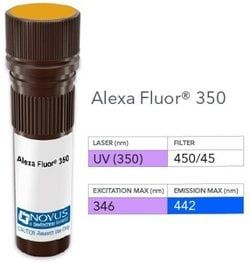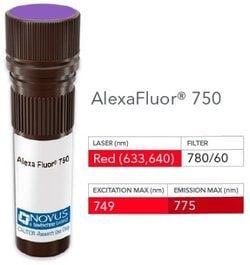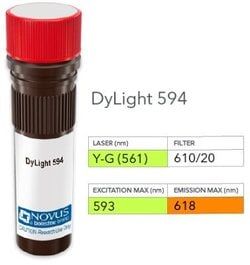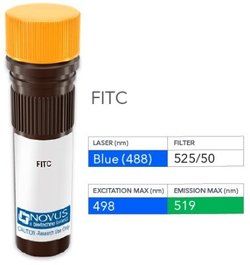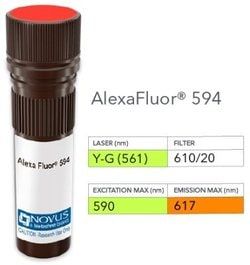CD45RO Antibody (SPM125), Alexa Fluor™ 532, Novus Biologicals™
Manufacturer: Novus Biologicals
Select a Size
| Pack Size | SKU | Availability | Price |
|---|---|---|---|
| Each of 1 | NB006435-Each-of-1 | In Stock | ₹ 61,855.00 |
NB006435 - Each of 1
In Stock
Quantity
1
Base Price: ₹ 61,855.00
GST (18%): ₹ 11,133.90
Total Price: ₹ 72,988.90
Antigen
CD45RO
Classification
Monoclonal
Conjugate
Alexa Fluor 532
Formulation
50mM Sodium Borate with 0.05% Sodium Azide
Gene Symbols
PTPRC
Immunogen
Cultured human T-cells from an IL-2-dependent T-cell line (CA1)
Quantity
0.1 mL
Research Discipline
Adaptive Immunity, Cell Biology, Cellular Markers, Cellular Signaling, Cytokine Research, Glia Markers, Hematopoietic Stem Cell Markers, Immunology, MAP Kinase Signaling, Mast Cell Markers, Mesenchymal Stem Cell Markers, Microglia Markers, Modulation of DNA Pools, Myeloid Cell Markers, Myeloid derived Suppressor Cell, Neurodegeneration, Neuronal Cell Markers, Neuroscience, Signal Transduction, Stem Cell Markers
Test Specificity
Recognizes a 180-185kDa protein, identified as isoform of leukocyte common antigen (CD45RO). The epitope recognized by this antibody is sensitive to neuraminidase digestion. This antibody reacts with mature activated T-cells, most thymocytes, and a sub-population of resting T-cells within both CD4 and CD8 subsets. It shows no reactivity with normal B or natural killer cells, but reacts with granulocytes and monocytes. Reportedly, it is useful to identify T-cell lymphomas and leukemias. It rarely stains NK cells or B-cell lymphomas.
Content And Storage
Store at 4°C in the dark.
Applications
Western Blot, Flow Cytometry, ELISA, Immunohistochemistry, Immunocytochemistry, Immunofluorescence, Immunohistochemistry (Paraffin)
Clone
SPM125
Dilution
Western Blot, Flow Cytometry, ELISA, Immunohistochemistry, Immunocytochemistry/Immunofluorescence, Immunohistochemistry-Paraffin, Immunohistochemistry-Frozen
Gene Alias
B220, CD45 antigen, CD45R, EC 3.1.3.48, L-CA, LY5, protein tyrosine phosphatase, receptor type, C, receptor-type tyrosine-protein phosphatase C, T200 glycoprotein, T200 leukocyte common antigen, T200receptor type, c polypeptide
Host Species
Mouse
Purification Method
Protein A or G purified
Regulatory Status
RUO
Primary or Secondary
Primary
Target Species
Human, Primate
Isotype
IgG2a κ
Related Products
Description
- CD45RO Monoclonal specifically detects CD45RO in Human, Chimpanzee, Monkey samples
- It is validated for Western Blot, Flow Cytometry, Immunohistochemistry, Immunocytochemistry/Immunofluorescence, Immunohistochemistry-Paraffin.

